"India is the laboratory for healthcare": Jacqueline Novogratz, Founder Acumen
Jacqueline Novogratz, Founder of Acumen decodes her journey from being an accidental banker to envisioning a world with no poverty.
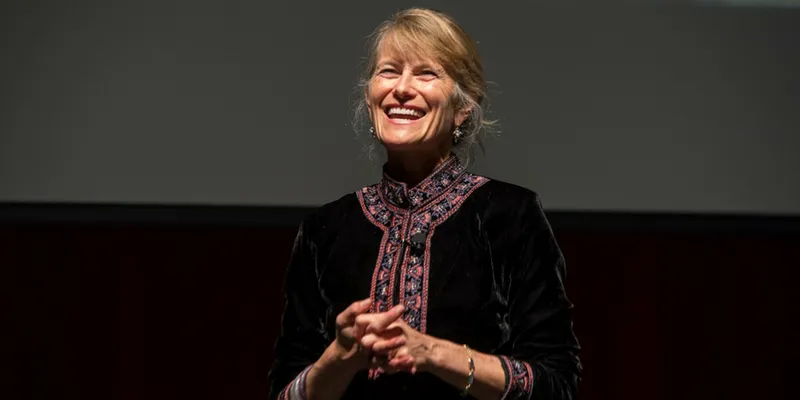
In 1987, women in the landlocked East African country Rwanda joined a credit institution for the first time. Duterimbere, a microfinance bank, was founded with the aim of supporting poor women in Rwanda. Fast-forward to the present, and this organisation is one of the largest moneylenders in the country. Among the group of powerful Rwandan women founders was the then 25-year-old American banker, Jacqueline Novogratz.
Jacqueline gave up her job as an investment banker to work in international development.
In 2001, she founded Acumen. As a nonprofit global venture fund, Acumen has so far committed $110 million to build more than 113 social enterprises in 14 countries including India. In an exclusive conversation with YourStory, Jacqueline speaks of her three-decade-long journey wherein she started as a young banker and went ahead to become one of the leading investors in social enterprises.
The years of growing up
In a migrant military family, Jacqueline was the eldest of her seven siblings. She believes that growing up in a Catholic household shaped for her the foundation of social justice. The defense background, however, entailed a very unpredictable life leading to multiple transfers across the United States.
When asked about her childhood, she shares,
At the age of six, I wanted to change the world.
Jacqueline earned a BA in Economics and International Relations from the University of Virginia and eventually graduated with an MBA from Stanford. At the age of 23, she landed her first job.
Accidental banker!
Recollecting the day in 1983 when she attended her interview at the Chase Manhattan Bank, New York, she shares how when the interviewer asked her if she was passionate about banking, she blatantly said ‘no’. Surprised, the banker said that if she got the job, she would get to travel 40 countries.
But travelling around the world had been Jaqueline’s dream!
I had always wanted to see the world. But back then we didn’t have the money to travel as much as we wanted. On the day of that interview, I was one conversation away from that dream. So, I took a deep breath and entered the room again and decided to give the interview another go. I got the job, she says.
In the next few years, Jacqueline travelled to Brazil, Malaysia, Hong Kong, Singapore, among other countries. This was also the time North America was facing a financial crisis — the time of a recession.
Finding home in Rwanda
The perks of being a banker came to Jaqueline at a very young age. But in the midst of all the to and fro, a visit to the central Africa had a lasting impact. And this, for her, was the real beginning.
I did not like the fact that poor people there did not even get to go to banks. I started to think if there was a better way. I approached my COO, Tony Torsceno, and shared my plan of expanding to the bank to Africa. As much as I was excited about this, he did not see a market there. But that day, deep in my heart, I knew that if I did not go to Africa then, I would never go again. So, I decided to quit my cushy life as a banker.
While on one hand she was justifying her vision to the authorities at the Chase Manhattan Bank, on the other, there was Bangladesh setting up a great example of microfinances with the Grameen Bank.
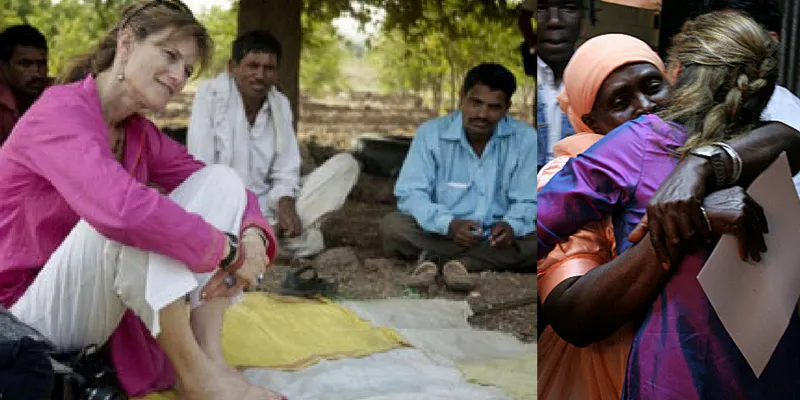
Drawing inspiration from this, Jacqueline relocated to Rwanda to launch Duterimbere, the first-ever microfinance in the country. A money-lending venture, Duterimbere provided women with small loans. She remembers,
In 1986 in Rwanda, which seems like a long time ago, women opened their bank accounts. At the age of 25, and as an American girl with no great support, I was in a foreign land with a desperate intent to make a difference.
In that completely alien land, striking a balance between trust and authenticity was her biggest challenge. In the initial days, Jacqueline went from door to door, sharing the idea of a microfinance and how it could change their lives. In this adventurous and tedious exercise, she found a ray of hope when three women parliamentarians of the country, volunteered to become the co-founders of the bank. Duterimbere was set up to promote women’s entrepreneurship at the grass-roots level with an aim to contribute to the living conditions of low-income working women.
The microfinance is now owned by 2,000 members drawn from across five provinces in 11 districts — Huye, Karongi, Kigali, Gicumbi, Muhanga, Musanze, Nyagatare, Nyamagabe, Rubavu, Rusizi, and Rwamagana.
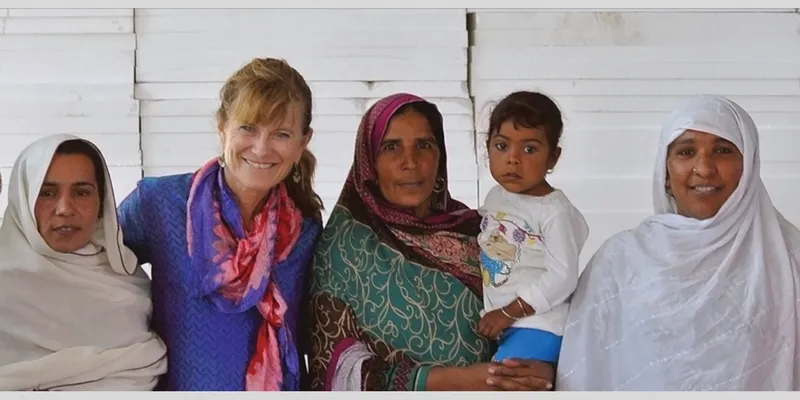
When asked about her experience at Rwanda, Jaqueline says, “the trust and love came to me soon. Throughout this journey, I quickly took people along.”
Setting up of Acumen
In 1994, over 1,000,000 Rwandans lost their lives in the genocide. Recollecting that time, she says, “This phase played a big role in teaching me about the impact even smallest decisions could have. It taught me about dependency, humiliation, and insecurity.”
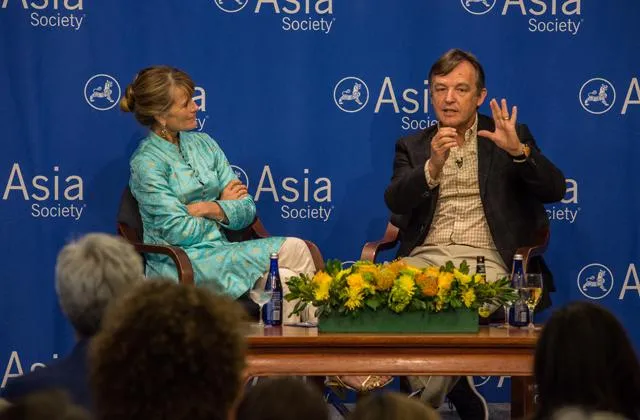
While Africa gave her hands-on experience in investments, Jacqueline wished to widen her work and started envisioning a corpus that would empower social enterprises across geographies. While she was looking for inspiration, what came her way was a book written by the Nobel Memorial Prize winner Amartya Sen. Development as Freedom gave her an insight into economic development and became her gateway to new learning.
In April 2001, with a seed capital from the Rockefeller Foundation, Cisco Systems Foundation and three individual philanthropists, Acumen was set up. Acumen has invested $113 million to build more than 108 social enterprises in countries such as Uganda, Kenya, Ghana, Pakistan, India, Colombia, the US, and others. These companies have created and supported 60,000 jobs, leveraged an additional $522 million, and brought basic services such as affordable education, healthcare, clean water, energy and sanitation to more than 232 million people. In 2015, Fast Company named Acumen among one of the world’s Top 10 Most Innovative Not-for-Profits.
Our first investment in India was in Aravind Eye Care in Madurai. Today, with all my experience, I would like to say that India would be a laboratory for healthcare in the world, Jaqueline remarks.
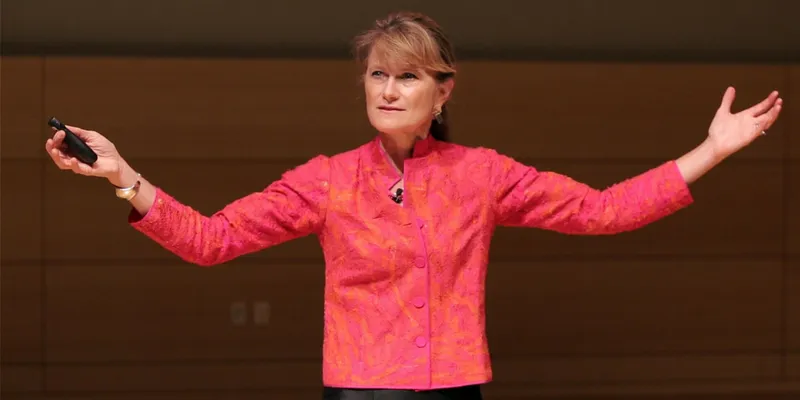
Leading by example, Jacqueline, in her three-decade long quest of making a difference in the lives of others, has redefined philanthropy. As the Founder of Acumen, she has been setting an example of the change empowered women can bring in. When asked about her greatest takeaway as an entrepreneur, she quips,
Too often, men and women think of balance. For me, the only way I can lead is through a life of intervention. Though my work is the centre of my life, I don’t drift too far away from my family and my network of people.
As I wind up the incredible story of this investment banker, who followed her heart to Africa, I’m wondering if the generations to come will have someone like Jacqueline Novogratz to draw strength and inspiration from.







